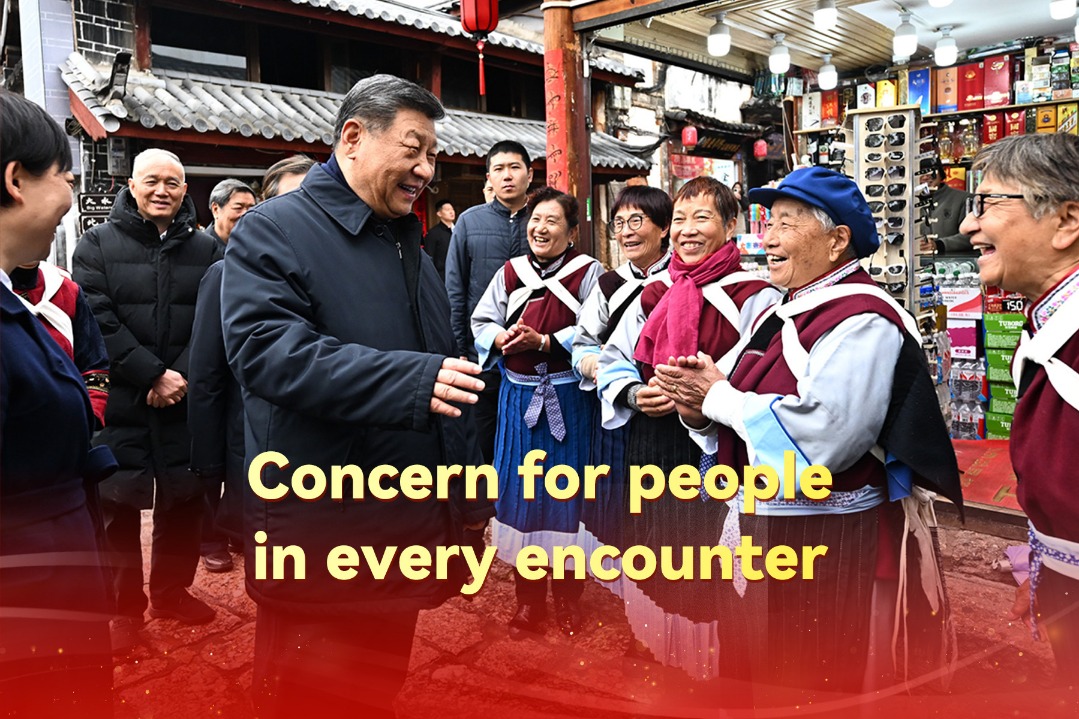Shared moments, shared future
A personal experience of cultural exchange highlights how BRICS youth are shaping a more cooperative and inclusive global future.


When I first arrived in Britain as a university student, I never imagined that a simple cooking session would teach me one of the most profound lessons in cultural exchange.
It was the eve of Chinese New Year, and in a small kitchen with my Chinese flatmates, we mixed Indian spices with Chinese flavors. What began as a simple icebreaker meal became hours of conversation about our countries' histories, values, and dreams for the future.
We laughed, debated, and shared stories, realizing that despite the distance between our homes, we had far more in common than we thought.
Fast forward to the BRICS Young Leaders Forum held in Kazan, Russia, this September, and that same spirit of collaboration was alive. The room was filled with young leaders from Brazil, Russia, India, China, South Africa, and beyond, all eager to contribute to shaping a shared future.
At its core, the BRICS Youth Initiative, signed at this forum, is grounded in the belief that today's youth hold the key to unlocking new opportunities for deeper cooperation within the BRICS framework.
As I sat there, it struck me again that true cooperation doesn't start with policy agreements or formal speeches. It starts with people. It's born in everyday moments, like sharing meals or late-night conversations. These are the moments where real connections are made.
This realization has shaped my work as a journalist in China, where I've spent years telling stories that aim to bridge gaps in understanding between cultures. Personal interactions can indeed transcend the rigid boundaries set by politics or history.
The same principles apply to BRICS cooperation today. While BRICS, as a political and economic bloc, has achieved much on the global stage, it is the youth who can breathe fresh life into its objectives. Young people bring creativity, innovation, and — perhaps most importantly — a willingness to engage with one another in ways that break down barriers.
From vision to action
Today's youth are extremely connected. The internet and social media make it easier than ever to share ideas, collaborate on projects, and learn from each other.
But true collaboration requires more than just connectivity. It demands a genuine effort to understand one another's perspectives and values.
The BRICS Youth Initiative acknowledges this, and it created opportunities for youth-led initiatives that tackle global challenges while fostering deeper understanding between BRICS nations.
For example, I've been part of discussions between Indian and Chinese youth on issues like poverty alleviation, technology, and public health — areas where our countries can and should collaborate.
These conversations need to happen more often, and in more structured ways, if we are to turn potential into action.
Youth exchange is also about shared experiences, whether through education, arts, sports, or even something as simple as travel.
During my time in China, I met countless young people eager to learn about India, just as I've encountered young Indians fascinated by Chinese culture. These informal exchanges often foster more goodwill than any number of political agreements.
The world today faces unprecedented challenges — climate change, inequality, and digital transformation, to name a few. These problems are global, and they require global solutions. The youth of BRICS countries are uniquely positioned to contribute, not just because of their skills or education, but because of their ability to think beyond national borders.
The BRICS Youth Initiative calls for strengthening collaboration in fields like technology, social governance, and economic development. But this collaboration will only be effective if driven by those most invested in the future — young people. They are the ones who will live with the consequences of today's decisions, so they must help shape tomorrow's solutions.
Building the future
Perhaps the most important contribution young people can make to BRICS cooperation is promoting inclusivity. As inheritors of a world shaped by both cooperation and conflict, they understand the importance of inclusivity both within their own countries and between nations. They see diversity not as a challenge, but as an asset.
This mindset is crucial for the future of BRICS. If the bloc is to continue growing, it must foster an environment where all voices are heard, and where the contributions of different cultures are not just tolerated but celebrated.
This is especially important for youth, who often feel marginalized in discussions about global governance and development. The BRICS Youth Initiative offers young people not just a platform to be heard, but an opportunity to lead the way toward a more inclusive, equitable world.
As someone who has spent the last decade working to bridge cultural divides, I see immense value in the BRICS Youth Initiative. However, for this initiative to succeed, it must be more than a document signed at a forum. It must be lived out through real connections, real collaborations, and real action. And this is where young people have a crucial role to play.
The initiative calls on BRICS youth to embrace opportunities for skills training, career development, and volunteerism, and to take responsibility for shaping the BRICS agenda. These are not just lofty ideals; they are actionable steps that young people can and should take across BRICS countries.
Whether through student exchanges, joint research projects, or entrepreneurial collaborations, there are countless ways for youth to contribute meaningfully to BRICS cooperation.
The signing of the BRICS Youth Initiative is an important milestone, but it's only the beginning. The real work lies ahead, in the hands of young people willing to take on the responsibility of building a more connected, cooperative, and inclusive world. And having seen firsthand the passion, creativity, and determination of BRICS youth, I have no doubt they are up to the task.
Together, they have the potential not just to enhance BRICS cooperation, but to redefine it for a new generation, and in doing so, create a brighter future for the world as a whole.
Written by Shamim Zakaria, an Indian media professional based in Beijing.
Today's Top News
- Xi urges studying, absorbing netizens' opinions in formulating 15th Five-Year Plan
- Yuan eyes greater role among safe-haven assets
- China set to clean up online health content
- China, EU can shape climate governance
- Chengdu gearing up for World Games
- Beijing, Kathmandu aim for new heights in relations






























